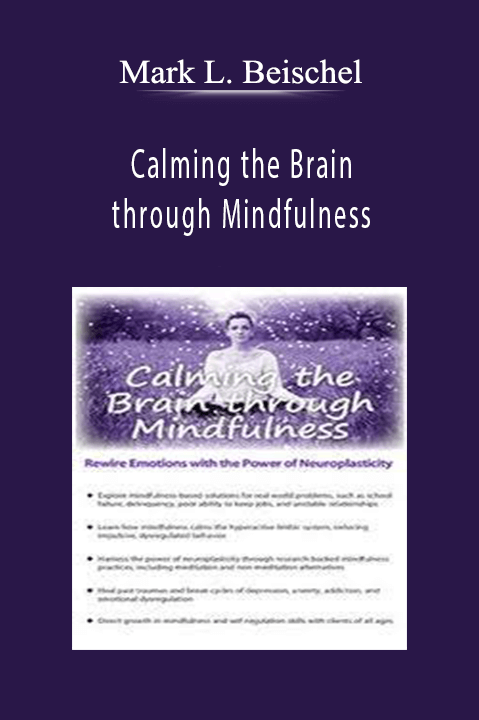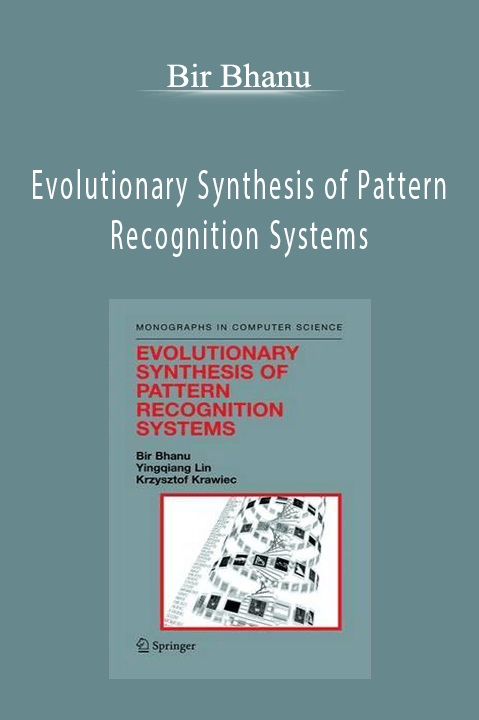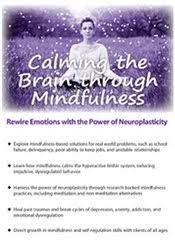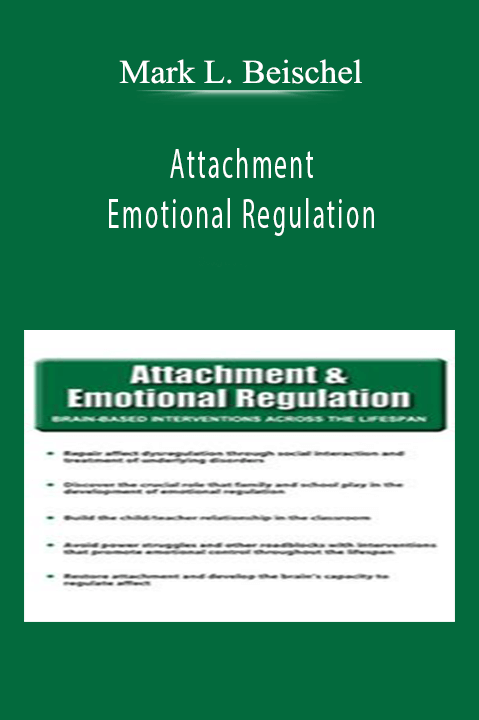Calming the Brain through Mindfulness: Rewire Emotions with the Power of Neuroplasticity – Mark L. Beischel
Mindfulness offers a set of simple, powerful tools that can help heal past traumas and break cycles of depression, anxiety, addiction, and emotional dysregulation. In this recording, you’ll practice real world applications of mindfulness that can open new doors for your clients.
Discover how to harness the power of neuroplasticity through mindfulness practices (including meditation and non-meditation skills), direct growth in mindfulness and self-regulation skills with children and adults of all ages, and guide efforts in moment-to-moment resilience and non-reactivity.
In addition to discussing mindfulness applications for numerous diagnoses, we will explore effective mindfulness-based solutions for many common scenarios, including school failure, delinquency, poor ability to keep jobs, unstable relationships, and many more.
- Identify how anxious children and adults have impaired brain development leading to mental health deficits, and how this informs the clinician’s choice of treatment interventions
- Summarize research on mindfulness practices, the relaxation response, and brain development and how the research informs clinical treatment interventions
- Describe mindfulness-based skills and their applications for clinical therapy, including meditation and non-meditation alternatives
- Demonstrate how practicing mindfulness can help clients reduce symptoms of anxiety, depression, addiction, or emotional regulation disorders
- Develop mindfulness-based solutions for real world client problems, such school failure, delinquency, poor ability to keep jobs, and unstable relationships
THE NEUROBIOLOGY OF MINDFULNESS
- Our brains are social by nature
- The foundation is set during the first year of life
- “Relational trauma” according to Schore
- The limbic system
- Frontal lobe development
- The “Executive” control center
- Neurotransmitters
- DNA telomeres
INVESTIGATING THE SOCIAL/EMOTIONAL BENEFITS OF MINDFULNESS
- Evolution of the cortex and survival
- Fear and anxiety resolved through relationships including spiritual
- Intimacy and the mirror neurons
- The development of attunement
- Intimacy skills:
- Self-awareness
- Empathy
- Communication of emotions
- Conflict resolution
- Sustaining commitment
- The neurobiology of mindfulness meditation
- Emotional benefits of mindfulness
MINDFULNESS AND EMOTIONAL REGULATION
- The evolutionary function of fear and anxiety
- Fast and slow circuits
- Fears and anxieties
- Stress and hippocampal damage
- Regulating fear
ELICITING THE RELAXATION RESPONSE: RESEARCH OF HERBERT BENSON
- Eastern meditation and visualization
- Gains through Benson’s method
- Genes expressed differently
- Anxiety and depression
- Cancer
- Heart disease
- The relaxation response also elicited by:
- Physical exercise
- Music
- Repetitive prayers
- Benson’s eight-step program for eliciting the relaxation response
MINDFULNESS IN MENTAL HEALTH TREATMENT
- Mechanisms of action
- Focusing on the present
- Definition of Shapiro and Kubat-Zinn –self-regulation and self-management
- Re-perceiving non-judgmentally
- Eight themes of Teasdale, Williams, and Segal
- Rogers’ mindfulness exercise
- Mindfulness, spirituality, and cultural competence
- The therapist’s mindfulness attitudes:
- Self-compassion and attunement
- Empathy and attunement with others
- Emotional regulation
EASTERN AND WESTERN MEDITATION
- History of Eastern and Western meditation
- The “Desert Fathers”
- Evolution of meditation and contemplation
- Neuroscience of meditation and contemplation
- Maslow’s self-actualizing characteristics and meditation
- Attachment theory, meditation and self-actualization
- Newberg’s research on the “Centering Prayer” of Keating
MINDFULNESS TRAINING AND INTERVENTIONS FOR
- Children and adolescents
- Emotional regulation disorders
- Chronic depression
- Anxiety disorders
- Addiction treatment
CASE STUDY
- Mindfulness practices help penitentiary inmate form an intimate relationship and develop responsible parenting skills
Get Download Calming the Brain through Mindfulness: Rewire Emotions with the Power of Neuroplasticity – Mark L. Beischel at Offimc.click Now!
Delivery Information
- Upon ordering the product, a delivery email with download instructions will be sent immediately to you so that you may download your files. If you log in (or create an account) prior to purchase you will also be able to access your downloads from your account dashboard.
- It is a digital download, so please download the order items and save them to your hard drive. In case the link is broken for any reason, please contact us and we will resend the new download link to you.
- If you don't receive the download link, please don’t worry about that. We will update and notify you as soon as possible from 8:00 AM – 8:00 PM (UTC+8).
- Please Contact Us if there are any further questions or concerns you may have. We are always happy to assist!









9 reviews for Mark L. Beischel – Calming the Brain through Mindfulness: Rewire Emotions with the Power of Neuroplasticity
There are no reviews yet.